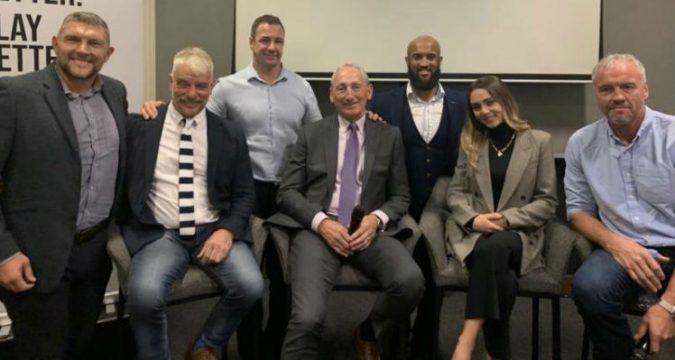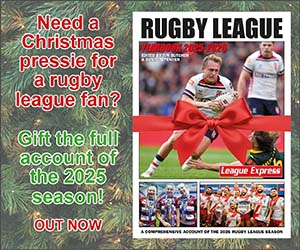 League Express editor Martyn Sadler speaks to Toronto Wolfpack CEO Bob Hunter about his club's preparations for the 2020 Super League season after their Million Pound Game victory over Featherstone Rovers.
MS: When is the earliest practical time you can actually play home games in Toronto?
BH: We've committed from a fixture standpoint that an
League Express editor Martyn Sadler speaks to Toronto Wolfpack CEO Bob Hunter about his club's preparations for the 2020 Super League season after their Million Pound Game victory over Featherstone Rovers.
MS: When is the earliest practical time you can actually play home games in Toronto?
BH: We've committed from a fixture standpoint that an A Q&A with Toronto Wolfpack CEO Bob Hunter
 League Express editor Martyn Sadler speaks to Toronto Wolfpack CEO Bob Hunter about his club's preparations for the 2020 Super League season after their Million Pound Game victory over Featherstone Rovers.
MS: When is the earliest practical time you can actually play home games in Toronto?
BH: We've committed from a fixture standpoint that an
League Express editor Martyn Sadler speaks to Toronto Wolfpack CEO Bob Hunter about his club's preparations for the 2020 Super League season after their Million Pound Game victory over Featherstone Rovers.
MS: When is the earliest practical time you can actually play home games in Toronto?
BH: We've committed from a fixture standpoint that an 
